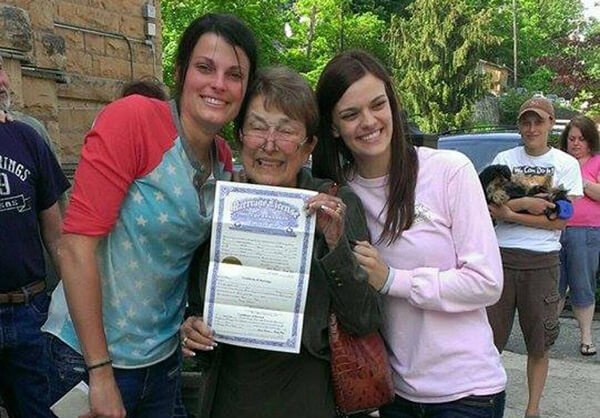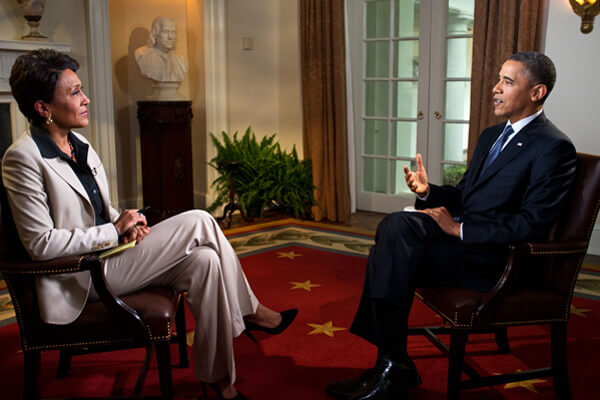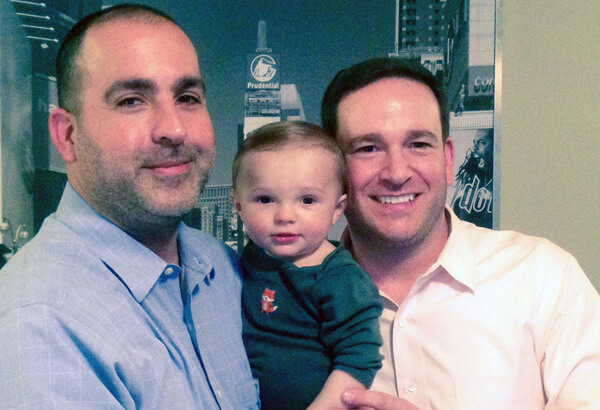BY ARTHUR S. LEONARD | In the eighth consecutive victory for marriage equality in federal court to emerge in the wake of the 2013 Supreme Court Defense of Marriage Act (DOMA) ruling, a district court judge has directed the State of Tennessee to recognize the same-sex marriages of three couples while a lawsuit they lodged is considered.
On March 14, Judge Aleta A. Trauger signed an order granting the couples’ motion for preliminary relief filed by their attorneys, Abby Rubenfeld of Nashville and the National Center for Lesbian Rights. Trauger concluded it was likely the plaintiffs will ultimately win their case and that the factors courts use to determine whether to grant relief before a final decision weighed in their favor.
Tennessee Republican Governor Bill Haslam. | US DEPARTMENT OF AGRICULTURE
Republican Governor Bill Haslam, the lead defendant, expressed disappointment with the ruling, and several days later said the state would appeal the award of preliminary relief.
In eighth marriage equality win since DOMA victory, judge orders state to recognize three marriages
Like several of the other recent gay marriage victories –– in Ohio and Kentucky –– the one in Tennessee involves only the issue of recognizing marriages from out of state. Others –– in Illinois (where the question was essentially when the new marriage equality law would take effect), Texas, Virginia, Oklahoma, and Utah –– dealt more broadly with the question whether the state is obligated to allow same-sex couples to marry. The legal analysis in all the cases, however, is substantially the same, and Trauger, ruling in a case brought last October 21, found both kinds of rulings persuasive.
The lead couple, Dr. Valeria Tanco and Dr. Sophy Jesty, met at Cornell University in Ithaca, while studying veterinary medicine, and were married in New York before they moved to assume teaching posts at the University of Tennessee’s College of Veterinary Medicine. Tanco became pregnant last summer and is due any day, so the motion for preliminary injunction had urgency, given questions surrounding the recording of the parents’ names on the birth certificate and parental rights more generally.
Sergeant Ijpe DeKoe, an Army Reserve officer, is stationed in Memphis, where he lives with his husband, Thomas Kostura. They married in New York prior to DeKoe’s deployment to Afghanistan in 2011. Johno Espejo and Matthew Mansell, adoptive fathers of two children, met and married in California. The family moved to Nashville when Mansell was transferred to his law firm’s office there. Espejo, who has been the stay-at-home father for their two sons, found part-time employment in Nashville.
Trauger examined four factors in deciding whether to grant preliminary relief –– the plaintiffs’ likelihood of success, whether they would suffer irreparable harm in the absence of relief, whether the balance of the “equities” in the matter tip in their favor, and whether issuing an injunction would be in the public interest.
On the threshold question –– whether the plaintiffs would likely prevail on the merits –– Trauger was convinced by the unbroken streak of recent marriage equality rulings in federal court that followed Edie Windsor’s victory in the DOMA case.
“These courts have uniformly rejected a narrow reading of Windsor, such as that advanced by the defendants here,” she wrote, “and have found that Windsor protects the rights of same-sex couples in various contexts, notwithstanding earlier Supreme Court and circuit court precedent that arguably suggested otherwise… In these thorough and well-reasoned cases, courts have found that same-sex marriage bans and/ or non-recognition laws are unconstitutional because they violate the Equal Protection Clause and/ or the Due Process Clause.”
Trauger noted that marriage equality prevailed even when courts subjected bans to “rational basis” review, under which laws are examined using the least demanding form of scrutiny based on the presumption they are constitutional unless the state can demonstrate no non-discriminatory basis for them.
The judge characterized the recent developments as a “rising tide of persuasive post-Windsor federal case law.” She pointed out that all the arguments raised by the State of Tennessee had been “consistently rejected” by other courts, and she found particularly persuasive the ruling by Judge John G. Heyburn against Kentucky’s ban on recognizing gay marriages from outside the state.
Federal courts recognize the deprivation of constitutional rights as an “irreparable harm,” so that factor also pointed to preliminary relief, and since the state has no legitimate interest in enforcing an unconstitutional law, the equities clearly favor the plaintiffs. It is, similarly, in the public interest to grant the injunction.
Pointing to the 2006 referendum when 81 percent of voters approved a constitutional ban on gay marriage, the state’s lawyers argued that granting the injunction would “override by judicial fiat the results of Tennessee’s valid democratic process.”
“That is essentially the case with any federal decision that overturns or stays enforcement of a state law that violates the federal Constitution,” Trauger wrote, unfazed by the state’s argument.
The judge took pains to emphasize the narrowness of her ruling, which merely temporarily enjoins enforcement of the anti-recognition law for the three plaintiff couples.
“The court is not directly holding that Tennessee’s Anti-Recognition Law is necessarily unconstitutional or that Tennessee’s ban on the consummation of same-sex marriages within Tennessee is unconstitutional,” she wrote.
Trauger was appointed to the federal bench by President Bill Clinton. Abby Rubenfeld, lead attorney for the plaintiffs, was the first legal director for Lambda Legal during the 1980s and is Tennessee’s leading LGBT rights attorney. Other Tennessee lawyers representing the plaintiffs include the law firm of Sherrard & Roe, Maureen Holland, and Regina Lambert.
One of the final paragraphs in the judge’s decision suggested she does not expect to make a ruling on the merits before the Sixth Circuit Court of Appeals –– where appeals of rulings from Tennessee are heard but where appeals are already in the works in the Ohio and Kentucky cases –– and perhaps even the Supreme Court have ruled on the question of marriage equality. Appeals are even further along in the Fourth and 10th Circuits, which have scheduled arguments in the Virginia, Utah, and Oklahoma cases for this spring.
With all these appeals pending and arguments beginning soon, it is highly likely the Supreme Court will face petitions to take up the issue of same-sex marriage during its 2014-15 term that begins in October.






































